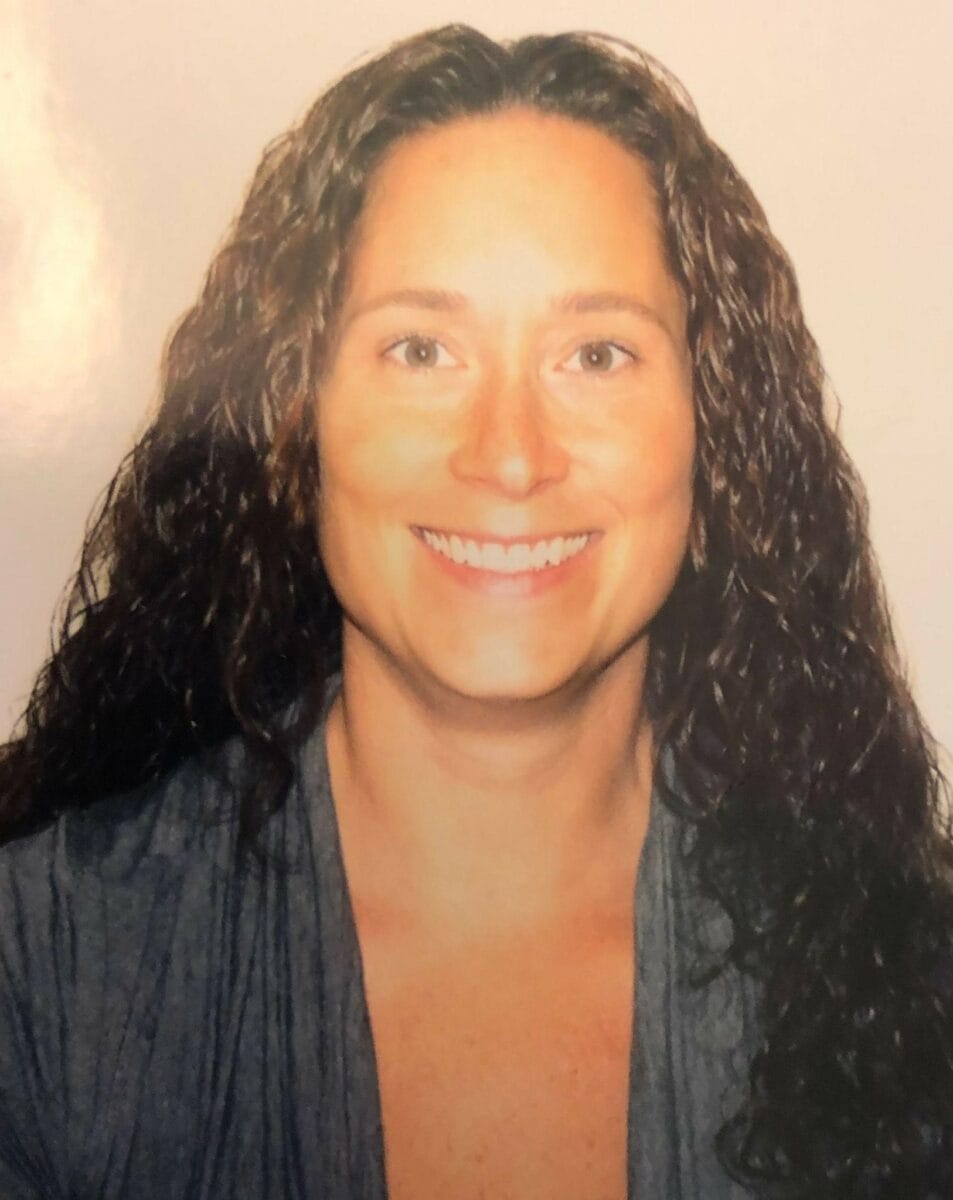Welcome to the SAA Becoming a ____ Audiologist Interview Series! There are many pathways or fields of audiology. In this series, the SAA will interview audiologists who work in varying fields of audiology.

Our next interview is with Rachel Cornwell, AuD, MBA,
a Chief of Audiology at Fort Jackson Army Health Clinic.
Dr. Cornwell also does contract work interpreting videonystagmographies (VNGs) and teaches as an adjunct professor for A.T. Still University.
Q: Give us a brief description of who you are, your official title, and where you are currently working.
A: My name is Dr. Rachel Cornwell, AuD, MBA (she/her). I am originally from New York and currently live in South Carolina with my husband and five children. I currently work as the Chief of Audiology at Fort Jackson Army Health Clinic. I also do contract work interpreting videonystagmographies (VNGs) and teach as an adjunct professor for A.T. Still University.
Q: Where did you receive your higher education (i.e., bachelor’s, AuD, etc.)?
A: I received my Bachelor of Science from Miami University of Ohio, my Master of Business Administration (MBA) from Touro University, and my Doctorate in Audiology from ATSU.
Q: What made you want to become a military audiologist?
A: What made me want to become a military audiologist is that I wanted to help protect people’s hearing and do everything that I can to prevent hearing loss from occurring. There were too many people who were acquiring hearing loss when it could be prevented.
Q: What do you do as a military audiologist?
A: As a military audiologist, you perform diagnostic evaluations (on all service members, retirees, and family members) which would include VNGs, tinnitus evaluations, auditory processing disorder (APD) evaluations, and fitting hearing aids. Along with the diagnostic evaluations, you do fitness for duty evaluations on recruits and service members. The other aspect, which is about 50% of your time, is managing the hearing protection program, performing hearing conservation briefs, firing range inspections, ship and submarine inspections, and fitting of hearing protection.
Q: What classes would you suggest for students wanting to pursue becoming a military audiologist?
A: The classes that I would suggest are an occupational audiology class and also making sure you’re well rounded to be able to do diagnostics on both adults and children. Also, tinnitus and vestibular classes are very important due to TBI and tinnitus disabilities.
Q: What opportunities do you remember from your under/graduate career that really helped you solidify your interest in military audiology?
A: My occupational audiology class gave me an introduction to military and occupational audiology, but it was when I started working for the military that I really got an understanding of all the different aspects of becoming a military/occupational audiologist.
Q: What kind of placements would you suggest to a student wanting to go into militaryaudiology?
A: I suggest getting a placement at an Army or Navy hospital/clinic and working with the civilian and military audiologist. This will give you a better understanding of both going into the military as an audiologist or working for the military in a civilian capacity.
Q: What do you know now that you wish you knew when you were deciding to go into military audiology?
A: I wish I would have known about the fourth-year externship program for the military. This is a great opportunity to get a paid externship, go into the military, and get experience in occupational audiology/hearing conservation. There is also the possibility of getting your student loans paid for.
Q: Is there anything else you want to say or suggest to students considering going into military audiology?
A: I would tell students that they need to talk to someone who is in the field currently. They can give you a better understanding of what goes on day to day and if it is something that would fit the student as a career. I would also tell students that there is a big difference between working for the military in occupational audiology and working for an outside company as an occupational audiologist.
This interview was completed by Kylie DeLaney, a third-year audiology student at A.T. Still University in Mesa, Arizona. Kylie is a member of the SAA Communications Committee.
Interested in a military audiology position or learning more about a military audiology externship? Check out the SAA externship page and HearCareers for more information and resources:
Related Posts
Insights from A Fireside Chat with Audiology Students and Professionals with Hearing Loss
On January 15, 2025, the Students with Hearing Loss Subcommittee of the Student Academy of Audiology (SAA) hosted a Fireside Chat featuring a panel of students and professionals with hearing loss. The student panelists included Mindee Anderson, Nicole Genser, and Natalia Matteo. The professionals were Sarah Sparks, AuD, and Michelle Hu, AuD. With over 60…
Pathways to Audiology: Sarah Jones, AuD
Welcome to the national Student Academy of Audiology (SAA) Pathways to Audiology Interview Series! While many audiologists come from a Communication Science Disorders (CSD) background, others have taken different pathways to the field. In this series, the national SAA will interview both audiologists and AuD students who have or are taking non-traditional routes into the profession…
Pathways to Audiology: Alexander Morris, AuD
Welcome to the national Student Academy of Audiology (SAA) Pathways to Audiology Interview Series! While many audiologists come from a Communication Science Disorders (CSD) background, others have taken different pathways to the field. In this series, the national SAA will interview both audiologists and AuD students who have or are taking non-traditional routes into the profession…



